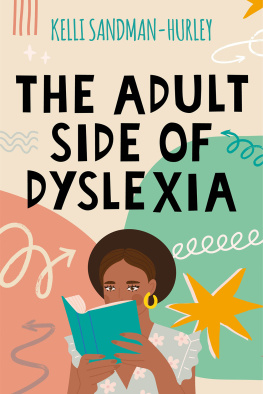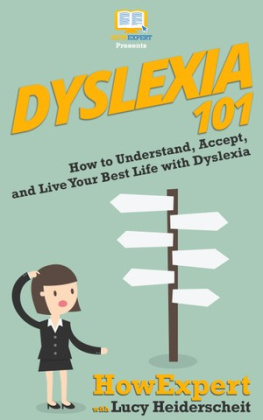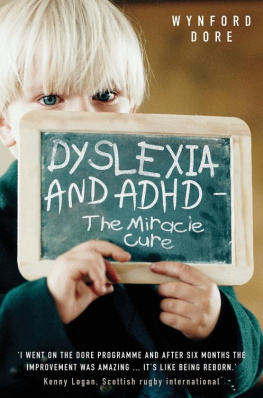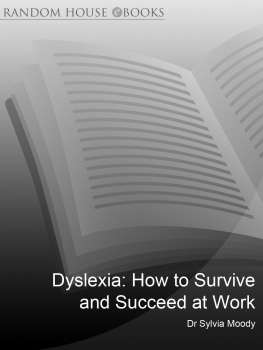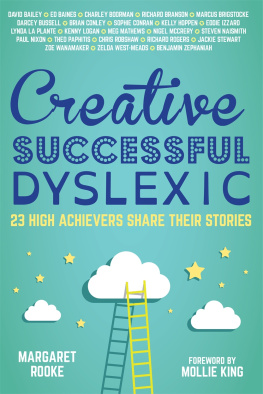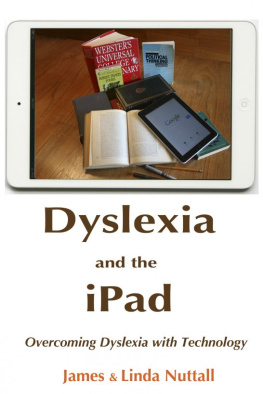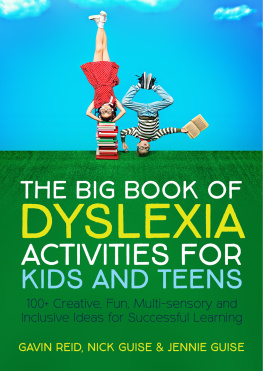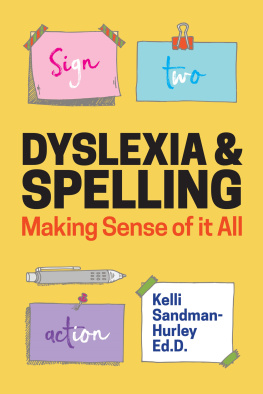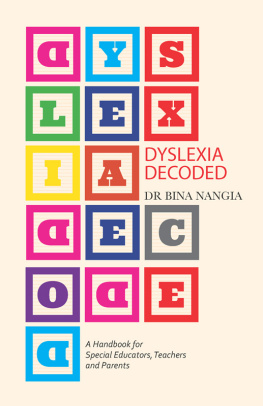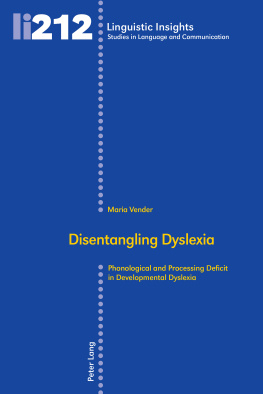Adult Dyslexia
Tips and Tricks for Beating it
Anthony Ekanem
Chapter 1
What Is Adult Dyslexia?
Dyslexia has been described as a difficulty in processing information which may be linked to deficiencies in short-term memory and visual coordination. It is an inherent weakness in short-term memory that is either auditory or visual, which can make it extremely difficult for that person to learn and understand the relation between symbols and spoken sounds. This difficulty allows the person to be unable to correctly speak the correct flow of auditory sounds needed to make a word or sentence sound proper.
The range and severity of the problem of adult dyslexia varies widely between dyslexic people. The main areas of difficulty that occur most often are reading, writing, spelling, numeric, personal organization and time-keeping. However, the degree to which individuals may be affected ranges from mild spelling difficulties to severe organizational problems or complete illiteracy. In all reality there really is no such thing as a typical case of dyslexia.
In some cases people with dyslexia are unaware that they suffer from such a problem whereas others haven't had a confirmed diagnosis until adulthood. Adult dyslexia is difficult to recognize and identify as it's a problem that many people either don't realize they have or they try to hide it. Simple tasks that a person with dyslexia may try to perform may become increasingly more difficult, such as taking down a message, which can lead to frustration and anxiety.
What Causes Adult Dyslexia?
Most research has concentrated on seeking to explain the cause of dyslexia, however this has proved to be somewhat unfruitful. Neurological research suggests that there may be some abnormality in the function of the left side of the brain which controls the speech system, whereas cognitive research in recent years has increasingly focused on problems of phonological awareness (the awareness of the speech sounds within words) and there has been speculation that these problems may be associated with a specific area of the brain.
One thing is conclusive however, it's that the cause of dyslexia does center around an abnormality in the brain that prevents a person from correctly recognizing the right speech pattern. Many people that aren't dyslexic can also have moments where they switch sounds out of their correct pattern which suggests to researches that perhaps it's something that can be corrected in everyone.
Whatever the cause may be, there is absolutely no doubt that dyslexia leads to many literacy problems within individuals and an insensitivity to sounds within a word, which in time will lead to problems with reading and reading comprehension. We also know that the causes of dyslexia can greatly vary from person to person which can make treatment a bit more difficult.
Estimates of the inclusion of dyslexia vary immensely from 4-10% of the population. It is believed to be four times more prevalent in males than females. Statistics in this area have been difficult to gather with great accuracy due to people not willing to admit to having a dyslexic problem.
What Are The Symptoms Of Adult Dyslexia?
Dyslexia can present itself in many, many ways and it's more than likely that all the following symptoms will not present themselves within one individual. However use this to see what ones may apply.
- A difference between academic achievement and real-life performance in practical problem-solving and verbal skills.
- Taking an inordinate amount of time to reading a book and finishing it.
- Missing endings of words in reading and spelling.
- Poor presentation of written work, such as poor spelling and punctuation.
- Not being able to think what to write.
- Reluctance to write things down, such as messages.
- Confusing telephone messages.
- Difficulty with note-taking.
- Difficulty in following what others are saying.
- Difficulty with sequences or verbal patterns.
- Reversing figures or letters or leaving words out.
- Problems with time management.
- Trouble with remembering tables.
- Difficulty with mental math.
Again all of these symptoms will not present themselves typically within one individual. However after looking over these symptoms and if you saw that a number of them applied to you then please think about speaking with your doctor on getting a possible diagnosis.
Chapter 2
What Strengths Do Dyslexic People Have?
Despite difficulties, many dyslexic people have risen to prominence in their specialized fields. Albert Einstein and Leonardo da Vinci were probably dyslexic based on reports and the information we have available to us today and Jackie Stewart and Susan Hampshire are just two highly successful figures who suffer from dyslexia.
Dyslexic people are often gifted in visually-based skills such as art, sculpture, design, architecture and engineering. Typically we see people that have diminished verbal or language skills or ability have a higher plain of logic and reasoning. They are often creative, original, lateral thinkers that can succeed at very high levels. Often they may offer their own, unusual way to solving a problem. Because having dyslexia may motivate them to succeed they often have a high degree of determination that can help them out in many other aspects of their life or career.
With all of the negative attention that surrounds dyslexia there are numerous people that have overcome the challenge and risen to prominent positions in their respective fields. There is no reason in the world why you should be any different. All it takes is a desire and will to want to succeed and the effort and patience needed in order to get it done.
Chapter 3
How Do I Know That I'm Dyslexic?
Whether in work or college the best way to determine whether you are dyslexic or not is to obtain a formal assessment or test from your doctor. Here are a few reasons to get tested and the advantages of an assessment:
- It may reveal difficulties which can be overcome with the proper training or strategy outlined
- It may help to clarify the reasons behind such difficulties with written work so that appropriate strategies can be developed for your personal use
- It puts any difficulties into perspective and can also identify areas of strength that you may have
- It can help admissions tutors or potential employers to judge a persons suitability for a particular course or job
- It can help to secure additional grants to pay for extra training or for equipment (e.g. computers) which might be needed
- It may reveal that extra time would be appropriate for some examinations in order to compensate for being dyslexic
There are two types of tests for dyslexia: screening tests and comprehensive tests.
Screening tests
These tests are designed to be used on very large numbers of people, to narrow down the group who might need a more thorough test for possible dyslexia. The purpose of this is to make certain that no one that doesn't fit the necessary criteria for dyslexia aren't tested over and over again. They are not tests for dyslexia, but are designed to help researchers focus on people who appear to be having difficulties with their studies, work or other daily activities and who might be dyslexic.
Typically, these tests consist of a short list of questions, such as:
1) Do you have difficulties with spelling?
2) Do you find directions confusing?
3) Were you reluctant to go to school?
Next page


